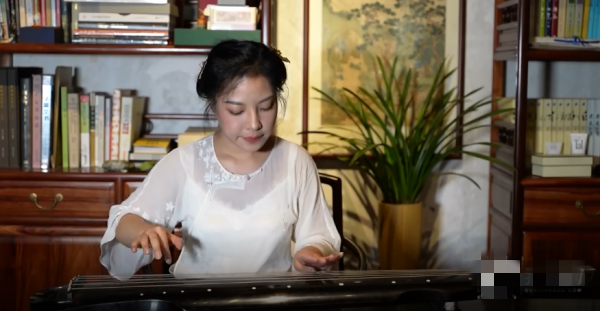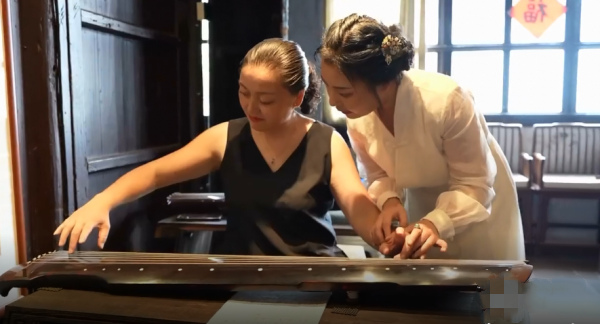The post-90s girls have been playing zither for 20 years and are determined to inherit the millennium ancient sound
Nowadays, more and more young people like Chinese traditional culture, and the group is growing, which shows our cultural confidence and makes people very happy! On October 6, we went to the Southwest Camp of Nantong to listen to the piano and met a post-90s girl who liked traditional culture.

In the Southwest Camp, the girl who leans down to teach the zither seriously, dressed in a Han suit, with flowing clothes and beautiful rhythm of the ancient zither, makes people feel like time flies. The girl in front of us is today's master, Wang Yani, the representative inheritor of the Mei'an School of Intangible Cultural Heritage Guqin Art in Nantong City. Wang Yani is a "post-90s". Although she is young, she has been playing zither for nearly 20 years. She has practiced "child skills".
Guqin, also known as Yao Qin, Yu Qin and Qixian Qin, is a traditional Chinese plucked string instrument with a history of more than 3000 years. The tone is deep and elegant, with a long aftertaste. It is very compatible with the scholar's lofty and lofty attitude, so it is very popular among ancient scholars. The Mei'an Qin School in Nantong also has a profound influence. Wang Yani's teacher is Mr. Wang Yongchang, the national representative successor of the Mei'an Qin School.

In the past 20 years, Wang Yani has been practicing piano every day. She is tired, hard and boring, but she has gained more from happiness. A few years ago, Wang Yani opened her own piano studio in the Southwest Camp. She felt that more people should see the beauty of the ancient zither and hear the elegance of its sound, which was also her responsibility as the inheritor of intangible cultural heritage.
 渝公网安备 50010702504639号
渝公网安备 50010702504639号